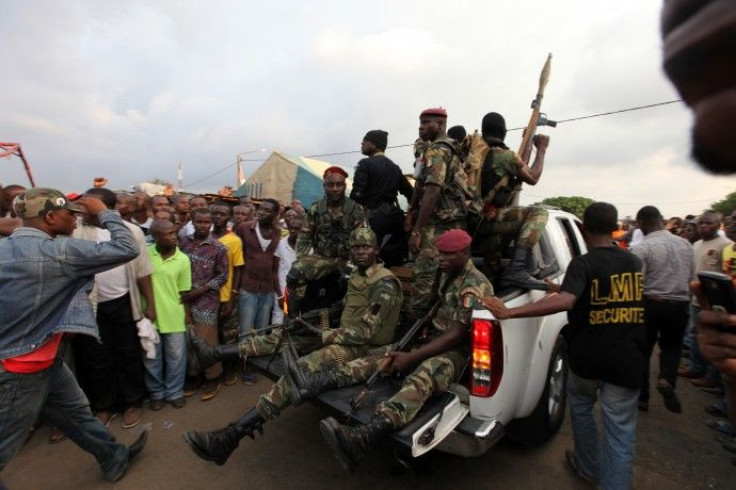EU to ban Ivory Coast's Gbagbo; West mulls sanctions

The European Union agreed on Monday to ban Cote d'Ivoire's incumbent President, Laurent Gbagbo and his aides, the BBC reported. The Gbagbo regime is likely to be slapped with harsh sanctions from the West. The sanction could also include freezing the personal overseas assets of the president and his men and issuing visa bans.
The international community also threatened the president that he could face a prosecution at the International Criminal Court. United States had already issued directives to its non-emergency staff to leave the country immediately. Britain, Holland and Belgium also followed suit.
African and international leaders have stepped up pressure on Gbagbo, threatening use of force to unseat him. Kenyan Prime Minister Raila Odinga already stated that African nations would consider ousting the incumbent president by force if needed. The deadline set by French President Nicholas Sarkozy demanding that Gbagbo should step down also expired on Sunday.
Violence is escalating in the region, as Gbagbo's aides have called upon their followers to prepare for a battle against the opposing Alassane Ouattara faction. In a televised speech, Gbagbo demanded that the 9,000 UN peacekeepers and 900 French troops stationed in the country following a civil war should leave immediately. The opposition also accused Gbagbo of recruiting rebel fighters from Liberia and Angola to kill their supporters. Reports suggest that more than 150 people have been killed so far in the violence following the country's general elections.
The country seems to be on the brink of civil war as neither of the groups refused to stand down. United Nations on Monday maintained that it was receiving reports of increasing human rights abuses that included abductions of hundreds civilians mainly from the political opposition. UN officials stated that the armed groups behind the abductions are being helped by the personnel from the Defense and Security Forces.
The deteriorating security conditions in the country and the interference with freedom of movement of UN personnel have made it difficult to investigate the large number of human rights violations reported, Navi Pillay, the UN high commissioner for human rights, said in a statement.
Abducted persons are reportedly taken by force to illegal places of detention where they are held incommunicado and without charge. Some have been found dead in questionable circumstances, she added.
Following elections last month, the Independent Electoral Commission (IEC) declared Ouattara to have won the run-off by 54.1 per cent of votes to 45.9 per cent. The United Nations, U.S. along with several other European countries extended their congratulations to Ouattara. But the country's Constitutional Council named Gbagbo as winner overturning the earlier results. The president of the council, Paul Yao N'Dre, stated that after excluding votes in seven regions that were marred by irregularities, Gbagbo won the polls by 51 per cent to Ouattara's 48 per cent.
Supporters of both parties clashed on the streets amid violent protests, especially in the country's former capital of Abidjan.
© Copyright IBTimes 2024. All rights reserved.











